- Home
- Lilith Saintcrow
Trailer Park Fae
Trailer Park Fae Read online
orbitbooks.net
orbitshortfiction.com
Begin Reading
Table of Contents
A Preview of Gallow and Ragged Book 2
A Preview of The Iron Wyrm Affair
Copyright Page
For L.I., as promised.
Then he began to gaze about
and saw within the walls a rout
of folk that were thither drawn below
and mourned as dead, but were not so.
—SIR ORFEO, AS TRANSLATED BY J. R. R. TOLKIEN
A DIFFERENT BEAST
1
Summer, soft green hills and shaded dells, lay breathless under a pall of smoky apple-blossom dusk. The other Summer, her white hands rising from indigo velvet to gleam in the gloaming, waved the rest of her handmaidens away. They fled, giggling in bell-clear voices and trailing their sigh-draperies, a slim golden-haired mortal boy among them fleet as a deer—Actaeon among the leaping hounds, perhaps.
Though that young man, so long ago, hadn’t been torn apart by gray-sided, long-eared hounds. A different beast had run him to ground. The mortals, always confused, whispered among themselves, and their invented gods grew in the telling.
Goodfellow, brown of hair and sharp of ear, often wondered if the sidhe did as well.
The Fatherless smiled as he watched Summer wander toward him through the dusk. She was at pains to appear unconcerned. His own wide, sunny grin, showing teeth sharper than a mortal’s, might have caused even the strongest of either Court unease.
Of course, the free sidhe—those who did not bend knee to Summer or her once-lord Unwinter—would make themselves scarce when the Goodfellow grinned. They had their own names for him, all respectful and none quite pleasing to him when he chose to take offense.
Summer halted. Her hair, ripples of gold, stirred slightly in the perfumed breeze. Above and between her gleaming eyes, the Jewel flashed, a single dart of emerald light piercing the gloom as the day took its last breath and sank fully under night’s mantle.
Someday, he might see this sidhe queen sink as well. How she had glimmered and glistened, in her youth. He had once trifled with the idea of courting her himself, before her eye had settled on one altogether more grim.
The quarrel, Goodfellow might say, were he disposed to lecture, always matches the affection both parties bore before, does it not? The Sundering had taken much from both Courts, and that bothered him not a bit. When they elbowed each other, the space between them was wide enough to grant him further sway. Carefully, of course. So carefully, patiently—the Folk were often fickle, true, but they did not have to be.
He let her draw much closer before he lay aside his cloaking shadows, stepping fully into her realm between two straight, slender birches, and she barely started. Her mantle slipped a fraction from one white shoulder, but that could have been to expose just a sliver of pale skin, fresh-velvet as a new magnolia petal. Artfully innocent, that single peeping glow could infect a mortal’s dreams, fill them with longing, drive all other thought from their busy little brains.
If she, the richest gem of Summer’s long, dreamy months, so willed it.
“Ah, there she is, our fairest jewel.” He swept her a bow, an imaginary cap doffed low enough to sweep the sweet grass exhaling its green scent of a day spent basking under a perfect sun. “Where is your Oberon, queenly one? Where is your lord?”
“Ill met by moonlight, indeed.” She smiled, just a curve of those red, red lips poets dreamed of. There had been mortal maids, occasionally, whose salt-sweet fragility put even Summer to shame, and woe betide them if any of the Folk should carry tales of their radiance to this corner of the sideways realms. “And as you are an honest Puck, I have come alone.”
“Fairly.” His smile broadened. “What would you have of me, Summer? And what will you give in return?”
“I have paid thee well for every service, sprite, and have yet to see results for one or two dearly bought.” Summer drew her mantle closer. She did not deign to frown, but he thought it likely one or two of her ladies would take her expression as a caution, and make themselves scarce. They would be the wisest ones. The favorites, of course, could not afford to risk her noting such a scarcity, and so would stay.
“Oh, patience becomes thee indeed, Summer.” He capered, enjoying the feel of crushed sweet grass under his leather-shod feet. A fingersnap, a turn, as if it were midsummer and the revels afoot. “As it happens, I bring word from a certain mortal.”
“Mortal? What is a mortal to me?” Her hand dropped, and she did not turn away. Instead, her gaze sharpened, though she looked aside at the first swirling sparks of fireflies drawn by her presence. There was nothing the lamp-ended creatures loved more than her own faint glow by night. Except perhaps the Moon itself, Danu’s silver eye.
“Then you do not wish to hear of success? O changeable one!”
“Puck.” The fireflies scattered, for Summer’s tone had changed. In her sable mantle, the golden hair paler now as her mood drained its tint, her ageless-dark eyes narrowing so very slightly, the loveliness of Summer took on a sharper edge. “I grow weary of this.”
“Then I shall be brief. He has worked another miracle, this mortal of science. There is a cure.”
She examined him for a long moment, and the Goodfellow suffered it. There was a certain joy to be had in allowing her to think he quaked at the thought of her displeasure. Far greater was the amusement to be had in knowing that the Queen of the Seelie Court, Summer herself, the fount of Faerie—for so the bards called her, though Goodfellow could have told them where a truer fountain welled—had very little choice but to dance to his tune.
She turned, a quarter profile of hurtful beauty, her black eyes flashing dangerous. The stars in their depths spun lazily, cold fires of the night before any tree was named. If an ensnared mortal could see her now, Goodfellow thought, he might well drop of the heartshock and leave the trap entire.
“And what is the price for this miracle, sprite?”
He affected astonishment, capering afresh, hopping to and fro. Under the grass was sere dry bramble, and it crunched as he landed. “What? I am no mortal tailor, to double-charge. All you must do is send your own sprite to collect it. The mortal longs for any breath of you, he entreats a word, a look, a sigh.”
“Does he?” Summer tapped one perfect nail against her lips. There was a rosy tint a mortal might mistake for polish on its sweet curve, and it darkened to the crimson of her smile as her mood shifted again. Changeable as Summer, the free sidhe said. Unwinter was far less capricious, of course… but just as dangerous.
“Welladay.” Summer’s smile dawned again, and she turned away still further. “Does his miracle perform, he may receive a boon. I shall send him a sprite, dear Goodfellow, and our agreement stands.”
“My lady.” He cut another bow, but she did not see the sarcastic turn his leer had taken. “You do me much honor.”
“Oh, aye.” A girl’s carefree giggle, and she moved away, the grass leaning toward her glow and the fireflies trailing. “I do, when the service is well wrought. Farewell, hob. I’ll send him a familiar face, since mortals are timid.” Her laugh, deeper and richer now, caroled between the shivering birches, a pocket of cold swallowing a struggling swimmer.
“Mind that you do,” Goodfellow said, but softly, softly. He capered once more, to hear the dried brambles crunch underfoot, like mortal bones. He spun, quick brown fingers finding the pipes at his belt. He lifted them to his mouth, and his own eyes fired green in the darkness. Full night had fallen, and silver threads of music lifted in the distance—the Queen was well pleased, it seemed, and had called upon the minstrels to play.
He stepped sideways, pirouetting neatly on the ball of one foot
, and emerged in a mortal alley. It was night here, too, and as he danced along, the breathy, wooden notes from his pipes arrowed free in a rill. Concrete whirled underfoot, the mortal world flashing and trembling as he skipped across its pleats and hollows. They did not see, the dull cold sacks of frail flesh, and only some few of them heard.
Those who did shuddered, though they could not have said why. A cold finger laid itself on their napes, or in another sensitive spot, and the gooseflesh walked over them. None of them suited Goodfellow, so he ambled on.
A little while later, a mortal chanced across his path—a sturdy youth, strong and healthy, who thought the Fatherless a common, staggering drunkard. With the pipes whispering in his ear, luring him down another path, the mortal boy did not realize he was prey instead of hunter until his unvictim rounded on him with wide, lambent eyes and a sharp, sickeningly cheery smile.
Yes, Goodfellow decided as he crouched to crunch, hot salt against his tongue, bramble did sound like mortal bones, if it was dry enough.
Pleased by his own thoroughness, he ate his fill.
SIMULACRUM
2
Jeremiah Gallow, once known as the Queensglass, stood twenty stories above the pavement, just like he did almost every day at lunchtime since they’d started building a brand-new headquarters for some megabank or another.
He was reasonably sure the drop wouldn’t kill him. Cars creeping below were shiny beetles, the walking mortals dots of muted color, hurrying or ambling as the mood took them. From this height, they were ants. Scurrying, just like the ones he worked beside, sweating out their brief gray lives.
A chill breeze resonated through superstructure, iron girders harpstrings plucked by invisible fingers. He was wet with sweat, exhaust-laden breeze mouthing his ruthlessly cropped black hair. Poison in the air just like poison in the singing rods and rivets, but neither troubled a Half. He had nothing to fear from cold iron.
No mortal-Tainted did. A fullblood sidhe would be uncomfortable, nervous around the most inimical of mortal metals. The more fae, the more to fear.
Like every proverb, true in different interlocking ways.
Jeremiah leaned forward still further, looking past the scarred toes of his dun workboots. The jobsite was another scar on the seamed face of the city, a skeleton rising from a shell of orange and yellow caution tape and signage to keep mortals from bruising themselves. Couldn’t have civilians wandering in and getting hit on the head, suing the management or anything like that.
A lone worker bee, though, could take three steps back, gather himself, and sail right past the flimsy lath barrier. The fall would be studded and scarred by clutching fingers of steel and cement, and the landing would be sharp.
If he was singularly unlucky he’d end up a Twisted, crippled monstrosity, or even just a half-Twisted unable to use glamour—or any other bit of sidhe chantment—without it warping him further. Shuffling out an existence cringing from both mortal and sidhe, and you couldn’t keep a mortal job if you had feathers instead of hair, or half your face made of wood, or no glamour to hide the oddities sidhe blood could bring to the surface.
Daisy would have been clutching at his arm, her fear lending a smoky tang to her salt-sweet mortal scent. She hated heights.
The thought of his dead wife sent a sharp, familiar bolt of pain through his chest. Her hair would have caught fire today; it was cold but bright, thin almost-spring sunshine making every shadow a knife edge. He leaned forward a little more, his arms spreading slightly, the wind a hungry lover’s hand. A cold edge of caress. Just a little closer. Just a little further.
It might hurt enough to make you forget.
“Gallow, what the hell?” Clyde bellowed.
Jeremiah stepped back, half-turned on one rubber-padded heel. The boots were thick-soled, caked with the detritus of a hundred build sites. Probably dust on there from places both mortal and not-so-mortal, he’d worn them since before his marriage. Short black hair and pale green eyes, a face that could be any anonymous construction worker’s. Not young, not old, not distinctive at all, what little skill he had with glamour pressed into service to make him look just like every other mortal guy with a physical job and a liking for beer every now and again.
His arms tingled; he knew the markings were moving on his skin, under the long sleeves. “Thought I saw something.” A way out. But only if he was sure it would be an escape, not a fresh snare.
Being Half just made you too damn durable.
“Like what, a pigeon? Millions of those around.” The bullet-headed foreman folded his beefy arms. He was already red and perspiring, though the temperature hadn’t settled above forty degrees all week.
Last summer had been mild-chill, fall icy, winter hard, and spring was late this year. Maybe the Queen hadn’t opened the Gates yet.
Summer. The shiver—half loathing, half something else—that went through Jeremiah must have shown. Clyde took a half-step sideways, reaching up to push his hard hat further back on his sweat-shaven pate. He had a magnificent broad white mustache, and the mouth under it turned into a thin line as he dropped his hands loosely to his sides.
Easy, there. Jeremiah might have laughed. Still, you could never tell who on a jobsite might have a temper. Best to be safe around heavy machinery, crowbars, nail guns, and the like.
“A seagull.” Gallow deliberately hunched his shoulders, pulled the rage and pain back inside his skin. “Maybe a hawk. Or something. You want my apple pie?” If Clyde had a weakness, it was sugar-drenched, overprocessed pastry. Just like a brughnie, actually.
Another shiver roiled through him, but he kept it inside. Don’t think on the sidhe. You know it puts you in a mood.
Clyde perked up a little. “If you don’t want it. How come you bring ’em if you don’t want ’em?”
Insurance. Always bring something to barter with. Jeremiah dug in his lunchbag. He’d almost forgotten he’d crumpled most of the brown paper in his fist. Daisy always sent him to work with a carefully packed lunch, but the collection of retro metal boxes she’d found at Goodwill and Salvation Army were all gone now. If he hadn’t thrown them away he had stamped on them, crushing each piece with the same boots he was wearing now. “Habit. Put ’em in the bag each time.”
She’d done sandwiches, too, varying to keep them interesting. Turkey. Chicken. Good old PB&J, two of them to keep him fueled. Hard-boiled eggs with a twist of salt in waxed paper, carefully quartered apples bathed in lemon juice to keep them from browning, home-baked goodies. Banana bread, muffins, she’d even gone through a sushi phase once until he’d let it slip that he didn’t prefer raw fish.
I just thought, you’re so smart and all. Ain’t sushi what smart people eat? And her laugh at his baffled look. She often made little comments like that, as if… well, she never knew of the sidhe, but she considered him a creature from a different planet just the same.
“Oh.” Clyde took the Hostess apple pie, his entire face brightening. “Just don’t stand too near that edge, Gallow. You fall off and I’ll have L&I all over me.”
“Not gonna.” It was hard taking the next few steps away from the edge. His heels landed solidly, and the wind stopped keening across rebar and concrete. Or at least, the sound retreated. “Haven’t yet.”
“Always a first time. Hey, me and Panko are going out for beers after. You wanna?” The waxed wrapper tore open, and Clyde took a huge mouthful of sugar that only faintly resembled the original apple.
“Sure.” It was Friday, the start of a long weekend. If he went home he was only going to eat another TV dinner, or nothing at all, and sit staring at the fist-sized hole in the television screen, in his messy living room.
Ridiculous. Why did they call it that? Nobody did any living in there.
“Okay.” Clyde gave him another odd look, and Jeremiah had a sudden vision of smashing his fist into the old man’s face. The crunch of bone, the gush of blood, the satisfaction of a short sharp action. The foreman wasn’t even a sidhe, to require
an exchange of names beforehand.
I’m mortal now. Best to remember it. Besides, the foreman wasn’t to blame for anything. Guiltless as only a mortal could be.
“Better get back to work,” Jeremiah said instead, and tossed his crumpled lunchbag into the cut-down trash barrel hulking near the lift. “Gotta earn those beers.”
Clyde had his mouth full, and Jeremiah was glad. If the man said another word, he wasn’t sure he could restrain himself. There was no good reason for the rage, except the fact that he’d been brought back from the brink, and reminded he was only a simulacrum of a mortal man.
Again.
A MORTAL FAILING
3
It looks clear. The Gates shimmered slightly, cold metal under Robin Ragged’s fingertips. Triple her own height, cruel spikes along their tops frozen with hungry, thorn-carved flowers, they hummed a low warning scrape-noise at her.
She drew back into shadow, afternoon sun rippling as the border between here and there slid. As long as she stayed just within touch of the Gates, one foot carefully on either side of the dividing line, she wasn’t trackable even though she was technically outside Summer’s realm. Had Robin a choice, she wouldn’t have picked this point of egress—but the Queen had ordered her to make haste.
The shadows there, in the gray mere-mortal world, all had teeth. Low doglike shapes with moonlit eyes twisted, their slim muzzles lifted between wavering seaweed fringes. If there was any doubt of the watch kept on the Seelie Gates, it was now assuaged most heartily.
Robin whistled tunelessly, concentrating, a silver quirpiece—an hour’s worth of work, a paltry insurance against pursuit—clutched in her free hand. Her palm was sweating. Mortal sweat, perfuming the air around her in long shimmering strands. Her skirt fluttered a little, eternal Summer breathing against her left ankle, a chill almost-spring wind touching her right. Dusk was the best time to slip through unremarked, but too far into nightfall was dangerous.

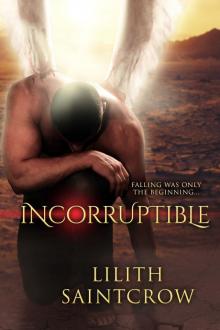 Incorruptible
Incorruptible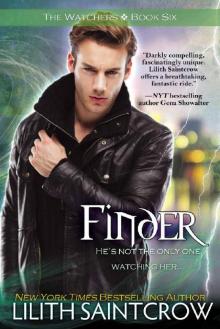 Finder (The Watchers Book 6)
Finder (The Watchers Book 6)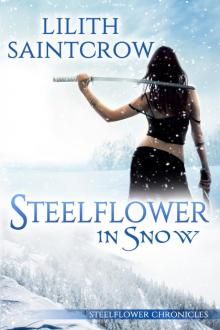 Steelflower in Snow
Steelflower in Snow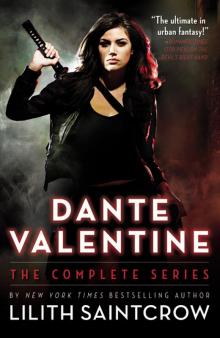 Dante Valentine
Dante Valentine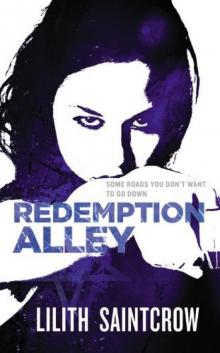 Redemption Alley-Jill Kismet 3
Redemption Alley-Jill Kismet 3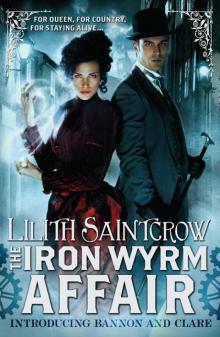 The Iron Wyrm Affair
The Iron Wyrm Affair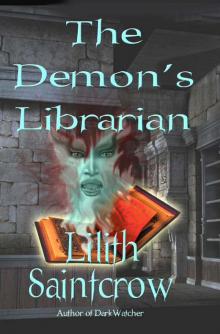 The Demon's Librarian
The Demon's Librarian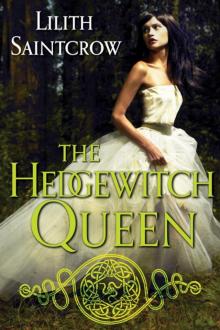 The Hedgewitch Queen
The Hedgewitch Queen Redemption Alley
Redemption Alley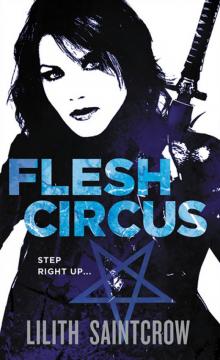 Flesh Circus
Flesh Circus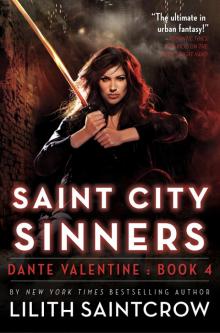 Saint City Sinners
Saint City Sinners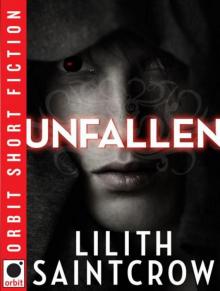 Unfallen
Unfallen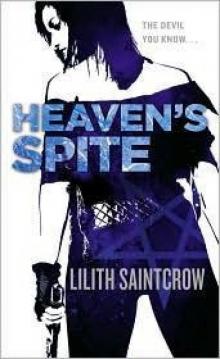 Heaven’s Spite
Heaven’s Spite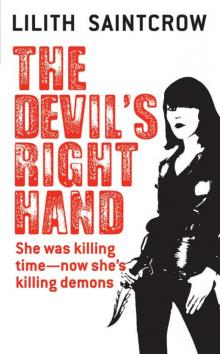 The Devil s Right Hand
The Devil s Right Hand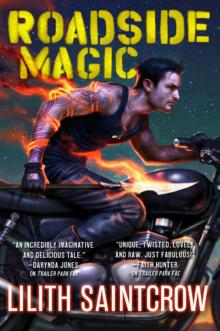 Roadside Magic
Roadside Magic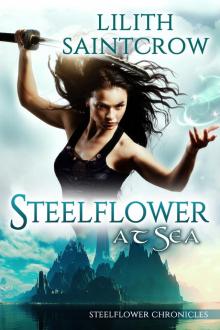 Steelflower at Sea
Steelflower at Sea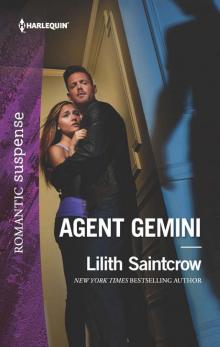 Agent Gemini
Agent Gemini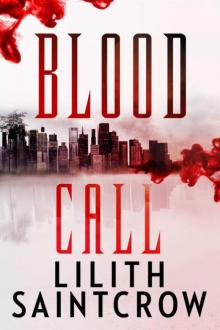 Blood Call
Blood Call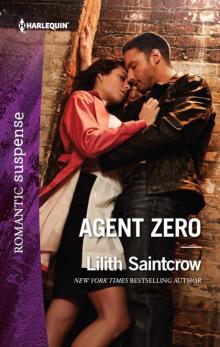 Agent Zero
Agent Zero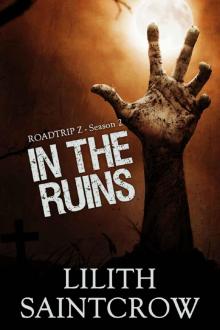 In The Ruins
In The Ruins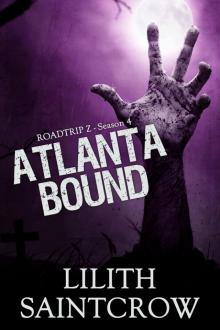 Atlanta Bound
Atlanta Bound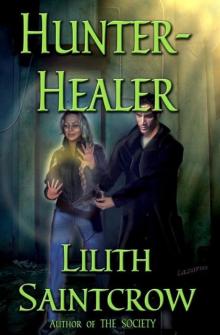 Hunter, Healer
Hunter, Healer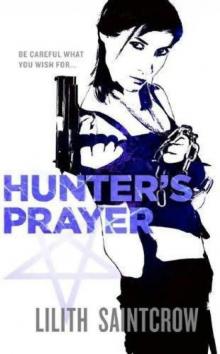 Hunter's Prayer
Hunter's Prayer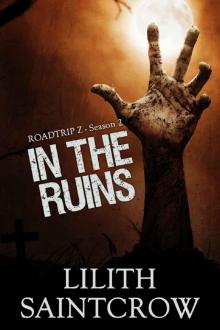 Roadtrip Z_Season 2_In The Ruins
Roadtrip Z_Season 2_In The Ruins Wasteland King
Wasteland King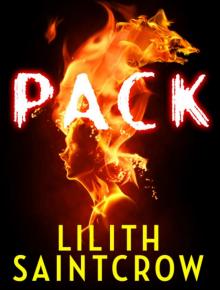 Pack
Pack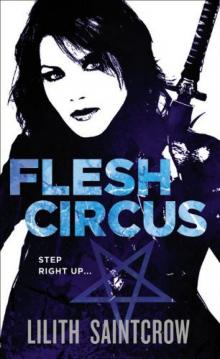 Flesh Circus - 4
Flesh Circus - 4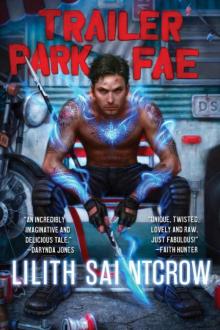 Trailer Park Fae
Trailer Park Fae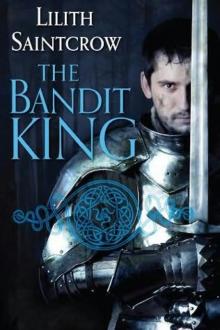 The Bandit King h-2
The Bandit King h-2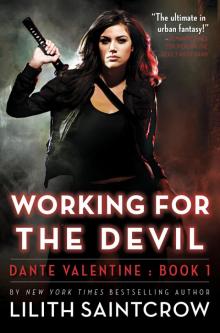 Working for the Devil
Working for the Devil Pocalypse Road
Pocalypse Road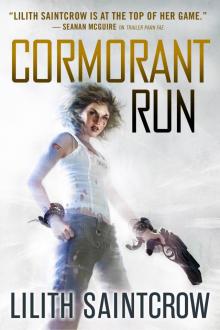 Cormorant Run
Cormorant Run Dante Valentine Book 5 - To Hell and Back
Dante Valentine Book 5 - To Hell and Back Desires, Known
Desires, Known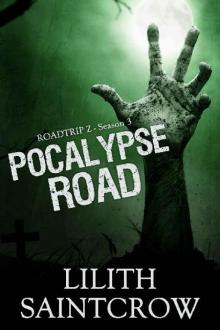 Roadtrip Z (Season 3): Pocalypse Road
Roadtrip Z (Season 3): Pocalypse Road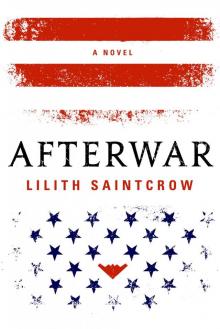 Afterwar
Afterwar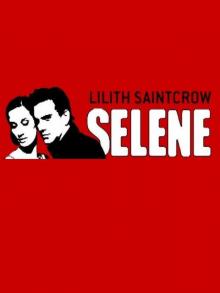 Selene
Selene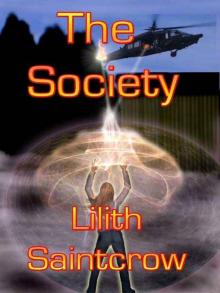 The Society
The Society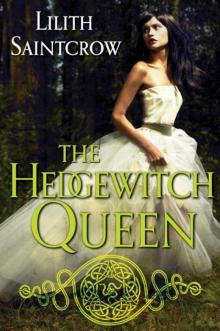 The Hedgewitch Queen h-1
The Hedgewitch Queen h-1 Night Shift jk-1
Night Shift jk-1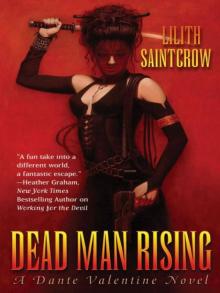 Dead Man Rising
Dead Man Rising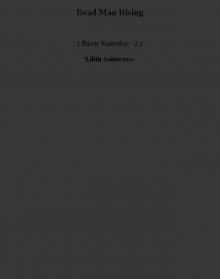 Dead Man Rising dv-2
Dead Man Rising dv-2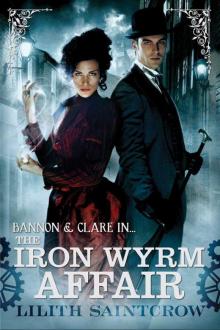 The Iron Wyrm Affair: Bannon and Clare: Book 1
The Iron Wyrm Affair: Bannon and Clare: Book 1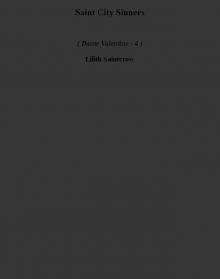 Saint City Sinners dv-4
Saint City Sinners dv-4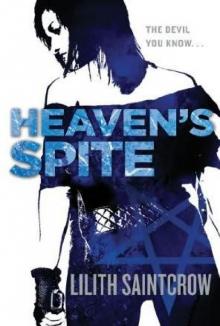 Heaven's Spite jk-5
Heaven's Spite jk-5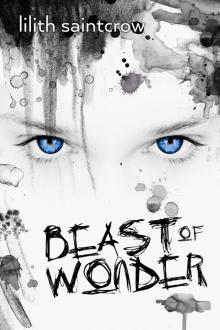 Beast of Wonder
Beast of Wonder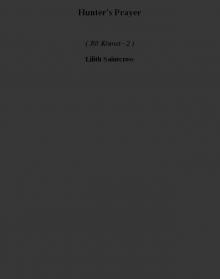 Hunter's Prayer jk-2
Hunter's Prayer jk-2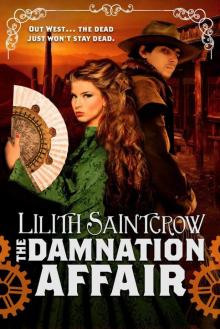 The Damnation Affair
The Damnation Affair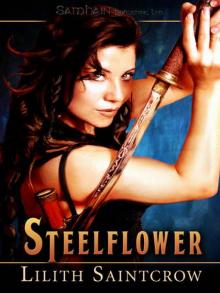 Steelflower
Steelflower The Red Plague Affair: Bannon & Clare: Book Two
The Red Plague Affair: Bannon & Clare: Book Two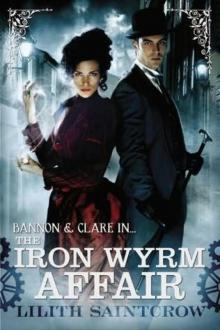 The Iron Wyrm Affair tb&ca-1
The Iron Wyrm Affair tb&ca-1 Flesh Circus jk-4
Flesh Circus jk-4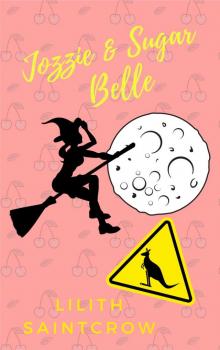 Jozzie & Sugar Belle
Jozzie & Sugar Belle Night Shift
Night Shift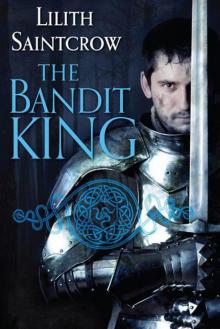 The Bandit King
The Bandit King![Hunter, Healer [Sequel to The Society] Read online](http://i1.bookreadfree.com/i1/04/05/hunter_healer_[sequel_to_the_society]_preview.jpg) Hunter, Healer [Sequel to The Society]
Hunter, Healer [Sequel to The Society] The Devil's Right Hand dv-3
The Devil's Right Hand dv-3 To Hell and Back dv-5
To Hell and Back dv-5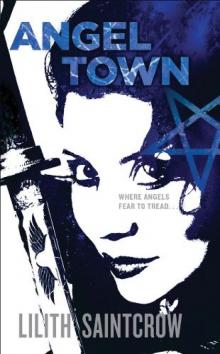 Angel Town
Angel Town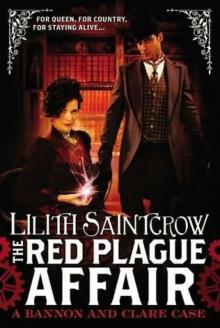 The Red Plague Affair tb&ca-2
The Red Plague Affair tb&ca-2 Redemption Alley jk-3
Redemption Alley jk-3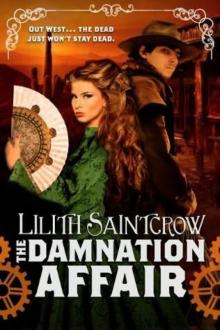 The Damnation Affair (the bannon & clare affairs)
The Damnation Affair (the bannon & clare affairs) Working for the Devil dv-1
Working for the Devil dv-1